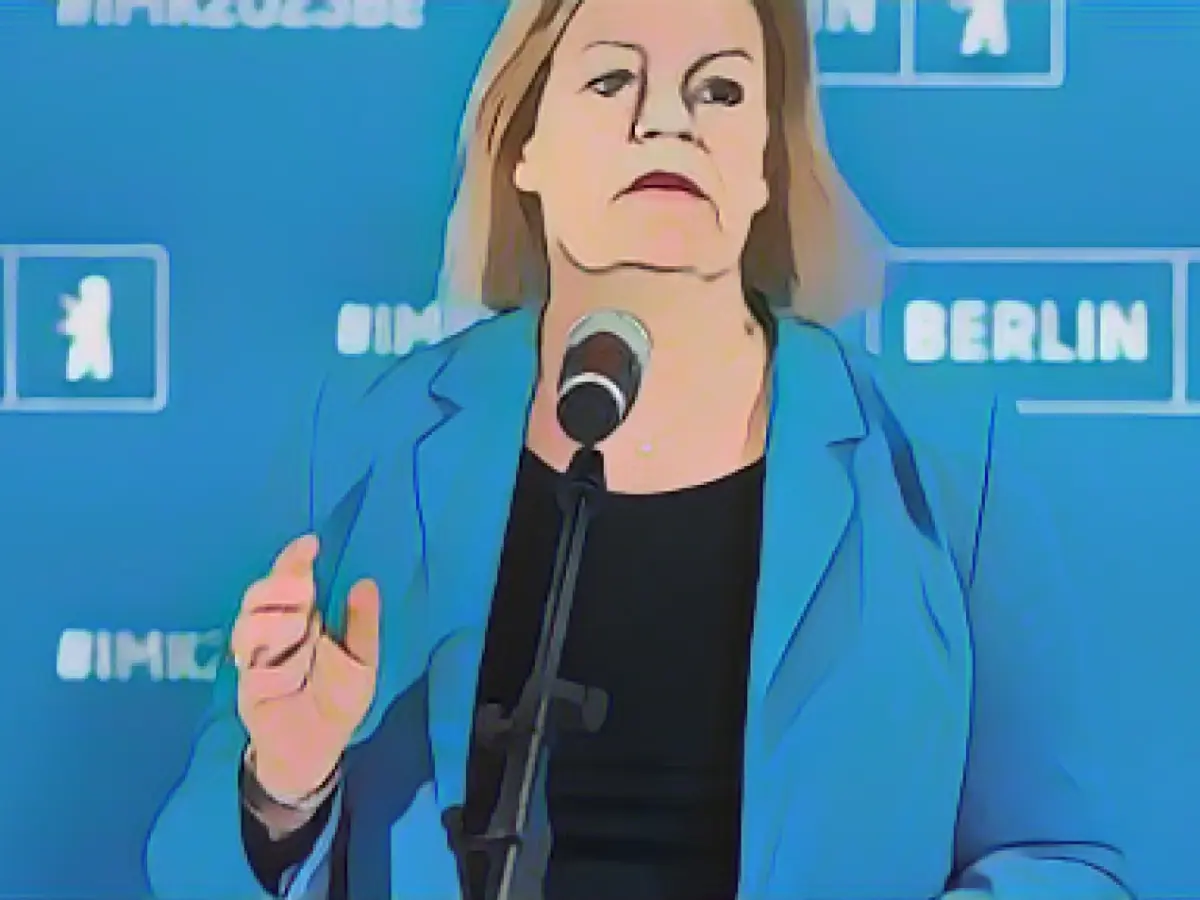Migration - Faeser extends fixed border controls by three months
The stationary controls at the borders with Poland, the Czech Republic and Switzerland, which were first ordered in mid-October, are to be continued until at least March 15 of next year. The Federal Ministry of the Interior announced on Friday that the controls would be continued in order to combat smuggling crime even more effectively and limit irregular migration and had been notified accordingly to the European Commission.
Federal Minister of the Interior Nancy Faeser (SPD) said: "Our measures are working." Thanks to the temporary border controls and measures closely coordinated with neighboring countries, the number of unauthorized entries nationwide had fallen by more than 60 percent from over 20,000 in October to around 7,300 unauthorized entries in November.
Faeser had extended border controls several times for shorter periods of time since their introduction on October 16. The stationary internal border controls at the German-Austrian border, which began in the fall of 2015, currently run until May 11, 2024.
Border controls are not actually planned within the Schengen area and must be reported to Brussels. If it is only a few days, this can be done with a short notice period. However, this option ends after two months, in the case of Germany on December 15.
FDP interior politician Ann-Veruschka Jurisch said: "It is regrettable that border controls with Switzerland are being extended until March." The member of the Bundestag, who has her constituency in Constance, complained that the resulting traffic jams and associated delays in border traffic were particularly restrictive for commuters. In any case, the checks carried out by German police officers on the Swiss side are more successful than the stationary checks at the border. This is where most of the refusals are issued.
On Thursday, the EU country Slovenia extended the border controls with neighboring countries Hungary and Croatia, which were originally planned to last until 22 December, by six months. The reason given for this was the ongoing threat of terrorism.
Communication BMI
Read also:
- A clan member is punished here
- Traffic lawyer warns: Don't talk to the police!
- Will he be convicted as Jutta's murderer after 37 years?
- He also wanted to kill his cousin
- Despite the extension of border controls with Poland, the Czech Republic, and Switzerland, German Federal Minister of the Interior Nancy Faeser (SPD) noted a significant decrease in unauthorized entries since their implementation.
- The Federal Ministry of the Interior announced that it had notified the European Commission about the continuation of fixed border controls until March 15, 2023, aiming to combat smuggling crime more effectively and limit irregular migration.
- Germany's neighboring country, Poland, has also seen a need to extend its border controls with Hungary and Croatia by six months due to ongoing threats of terrorism as of December 2022.
- Federal Minister of the Interior Nancy Faeser has extended the border controls several times since their introduction on October 16, 2021, with the current ongoing controls at the German-Austrian border scheduled to run until May 11, 2024.
- FDP interior politician Ann-Veruschka Jurisch expressed her regret over the extension of border controls with neighboring Switzerland until March 2023, as she believed that the checks conducted by German police officers on the Swiss side were more successful than the stationary border checks.
- The Czech Republic, as a country involved in the EU border control operations, plays a crucial role in facilitating the movement of refugees and migrants within the Schengen area and is responsible for implementing border control measures in line with EU regulations.
Source: www.stern.de








